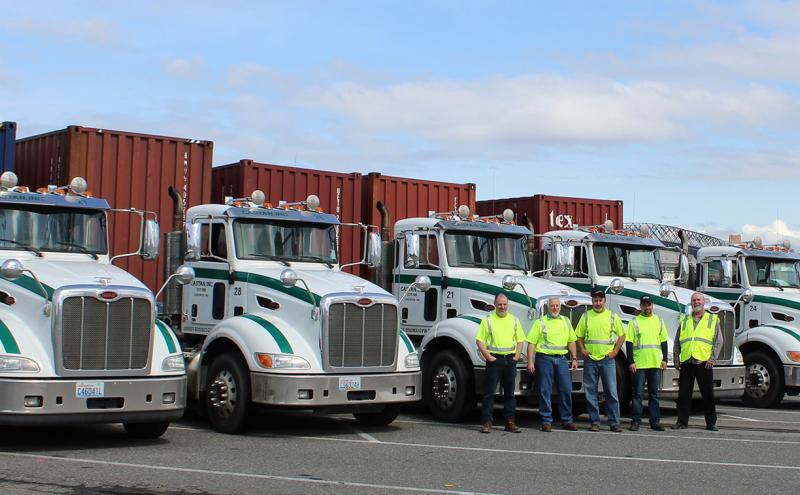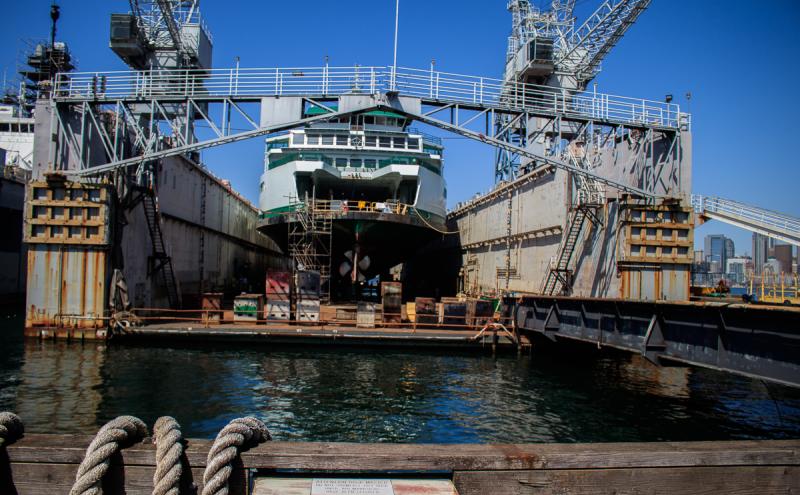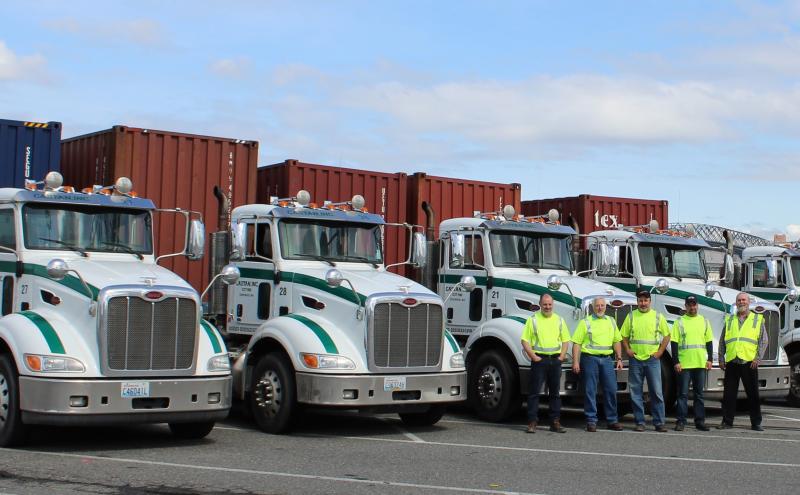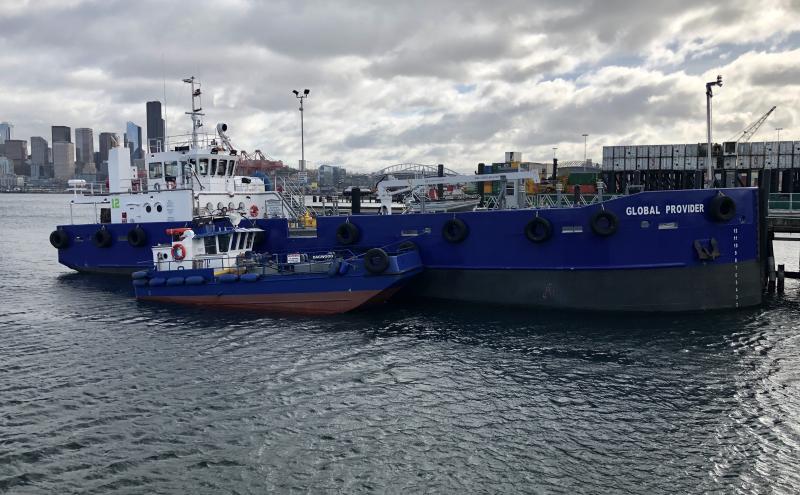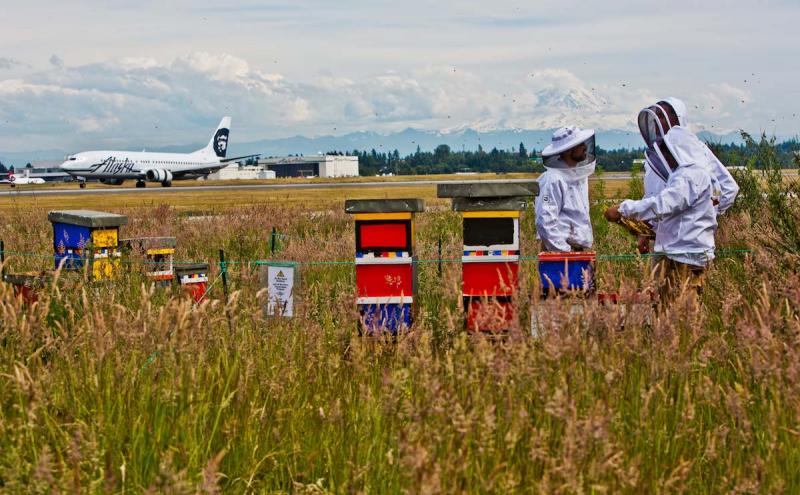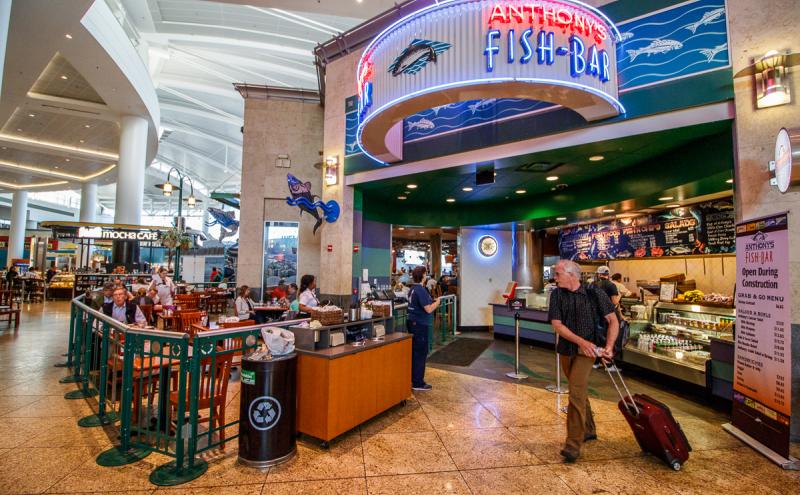
The American highway and airport food service company operates between 20 and 22 restaurants and cafes at Sea-Tac Airport. Sea-Tac HMS Host management regularly works with the Port of Seattle to examine ways they can incorporate sustainable practices in their dining locations.
The company taps its directors at a local level to look at their own operations individually and partners with the airport to look at ways restaurants can reduce waste and practice sustainability.
Chris Keaton, Senior Director of Operations of HMS Host for Sea-Tac Airport, said HMS Host representatives at Sea-Tac have pushed to be innovative and proactive rather than waiting for others to identify needed actions. The company is the winner of a 2017 Port of Seattle Environmental Excellence Award for Environmental Performance (honor roll).
It’s our personal mission to be good environmental partners and good corporate citizens.
Keaton said in the spirit of sustainability, HMS Host has been involved in a variety of activities that promote environmentally-friendly practices in its restaurants.
In 2017 HMS Host worked with the Sea-Tac seafood restaurant Anthony’s to reduce waste. Previously, when customers were seated at a table at Anthony’s, the server would immediately give each customer a glass of water with ice and a straw. After noticing that more than half the customers didn’t touch their water, Anthony’s started offering water on demand. This resulted in a reduced use of unnecessary straws and water, and water savings due to fewer glasses washed. HMS Host actively promoted the Strawless September initiative in 2017, where over 20 Sea-Tac dining establishments eliminated plastic straws for the month of September. HMS Host manages the Alaska Lodge, which currently uses compostable plates and real silverware to reduce waste. HMS Host has also worked to reduce and recycle waste at its warehouse, recycling an estimated 45 tons of glass and 25 tons of cardboard in 2017.
Other efforts include replacing aging ice machines with brand new Energy Star appliances and donating furniture from closing restaurants to an affordable housing program for the homeless. In 2017, the company donated 21,000 pounds of food — or 16,500 meals — food that would have just been thrown in the trash. Keaton said recycling and environmental stewardship is second nature in the Pacific Northwest but it’s not like that everywhere.
“Some people don’t have recycling at their house and that just blows my mind,” he said. “As a company we are very committed to that. We place a high demand for us to be responsible citizens even when it is not required or asked for.”
Keaton said HMS Host recognizes the benefit of sustainable practices and aligning with the Port’s goals. “It’s something we take pretty seriously — not just what’s required — but going above and beyond,” he said. “It’s our personal mission to be good environmental partners and good corporate citizens.”

